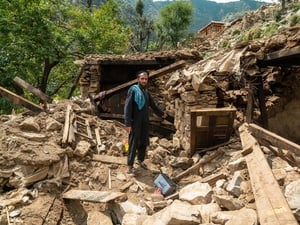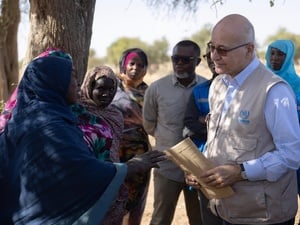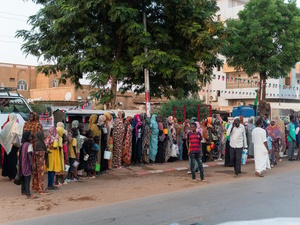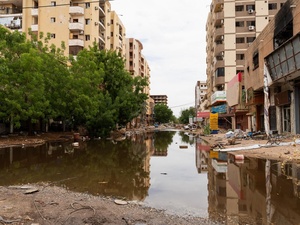Darfur: IDP evaluation; Chad: security agreement with government
Darfur: IDP evaluation; Chad: security agreement with government
Over the weekend, UNHCR sent two teams to the villages of Suleha and Arara in Sudan's West Darfur region near the Chad border to evaluate the situation for internally displaced people in the villages and overall security conditions. They will also determine if there have been any refugees returning to these villages from Chad. The teams are expected to report back in the coming days with their initial findings.
The visits are part of UNHCR's increasing efforts to cover the area on the Sudan side of the Chad-Sudan border. We have also made an agreement with the non-governmental organization Intersos to work on developing a better picture of the displaced population in the border zone. This includes looking at the numbers of displaced people, the gender breakdown of the populations, the villages from which they have fled, and trying to identify particularly vulnerable individuals in need of extra assistance.
Across the border in eastern Chad, where 188,000 refugees have fled from Darfur, UNHCR and the Chad government are set to sign an agreement today aimed at maintaining security and ensuring the civilian nature of the refugee camps and surrounding areas. In keeping with UNHCR standards, the agreement recognises the overall responsibility of the Chad government for security in the camps and lays out the obligation of the Sudanese refugees themselves to respect the laws of the host country.
Under the terms of the agreement, the government will deploy 180 specially trained members of the gendarmerie in the nine existing camps, which in total now host some 160,000 refugees - 80 percent of them women and children. Among their duties, the gendarmes will ensure that no armed person is allowed to enter the refugee camps and to ensure that refugees are not involved in any activity that could compromise the civilian character of the camps. They will carry out periodic inspections of the camps and provide protection of the camp infrastructure as well as food and other stocks.









